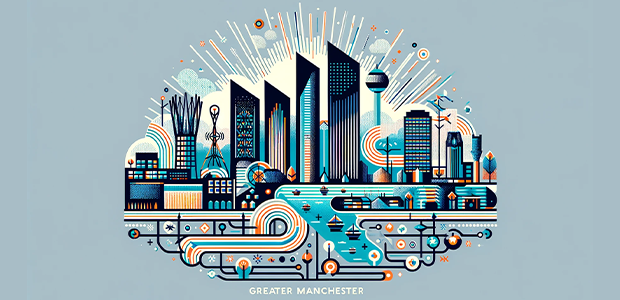
How Data Centres are Steering Greater Manchester’s Technological Revolution
Any revolution is a major step in change and change is simultaneously difficult and exciting, providing drawbacks and opportunities, often in equal measure. People called the industrial revolution the ‘end of the world’. They asked what would happen to people's farms and their jobs - the artisan skills – and there was a period of uncomfortable transition, however in reality it opened up opportunities that they had never dreamt of.
We are going through these parallels with today’s technology revolution - never more so than in Manchester, a city where the last industrial revolution actually started - and the lessons to be taken are that we need to lean in, positively confront the challenges, not ignore them, find ways to adapt people's skills, to change the way that we live for the better.
The UK has often been criticised for being too London-centric, and actually, this ongoing tech revolution has been and will continue to be the Great Leveller. That is the opportunity within the challenge. So, I don't think we should ever shy away from change - just need to treat it with a healthy respect.
We never dreamt that there would be such an opportunity in data centres. It was only 15 years ago or so when the words ‘data centre’ were added to dictionaries, so before that, there literally were no words for what we do. The industry did not exist in a recognised way – data centres were just seen as IT rooms in back cupboards. Revolutions do that. They create opportunities out there that we aren't even aware of yet.
And, the human race, by definition, is bestowed with a great ability to be creative, to be thoughtful to, and to use technology. Tech is not a driver, it’s an enabler and a tool. So it’s not about what people can do, or what it can do, it’s what people can do with it.
When we combine our skills with technology we find innovation which drives further change. So AI is just that - it’s an acceleration of possibility, something that allows us to speed up that productive, creative cycle.
This is our reality at Kao Data. Just over a decade in, we are now able to run models and examine things in detail and in periods that were previously impossible, which effectively turns the wheel much quicker.
A great example of this is why a calculator came to be called a calculator.
A calculator used to be a job. They used to have rooms for people called calculators. When the first IBM computer came along there was this whole discussion about who was better - the people or the machine. Of course, they ended up having a great marriage. You needed the people to operate the machine.
Something that used to be a job, I now have in the palm of my hand. We have since created new jobs that use that tool to do things which that department of ‘calculators’ could never have done in a million years.
When we come back to data centres one of the things we are trying to do in Greater Manchester - the UK’s fastest-growing tech hub and city region of huge technological endeavour - is to embed the idea that it needs to have an underlying fabric of data centres. A foundation for people and enterprises to build on top of. Data centres are fundamental in the ecosystem of compute - the very basis of the food chain.
I think about it a bit like the great gold rush of the 1800s. It was an opportunity to build things, grow things, make money, build families, build homes, build lives. In data centres, we sell picks and shovels to allow people to go out and find their fortune and create the things that are going to change the dynamics of tomorrow.
So this is a good time to talk about another revolution - the great American revolution centred in and around the railways. So as the railway network was built out, it essentially changed the shape of commerce. Data centres are the train tracks of a digital economy and they're so fundamental in terms of infrastructure that it has to be right, otherwise, we will fall behind.
My biggest concern regarding this tech revolution is whether we are preparing our children and young adults today for the opportunities of tomorrow. I'm not convinced that we are and we need to do more. This brings us back to our investment in Greater Manchester which I think provides us with a great opportunity to use our move up to the north as a catalyst to kick-start initiatives within Stockport and Greater Manchester as a whole, to encourage young people in the region into technology, AI and the data centres that support this.
We are already engaging with stakeholders across this tech-savvy, industrial powerhouse, and we need to grab the chance to play a massive role in achieving its ambitions which are outlined in Andy Burnham and the GMCA’s impressive digital strategy for the city. We can sit proudly at the heart of their crucial tech ecosystem, educate on the myriad of possibilities that data centres provide and collaborate on delivering a beneficial revolution for all.

